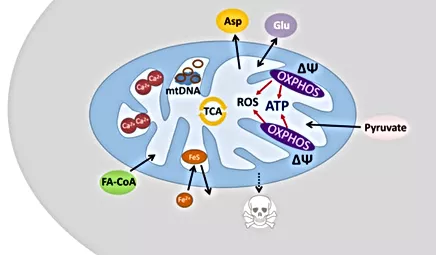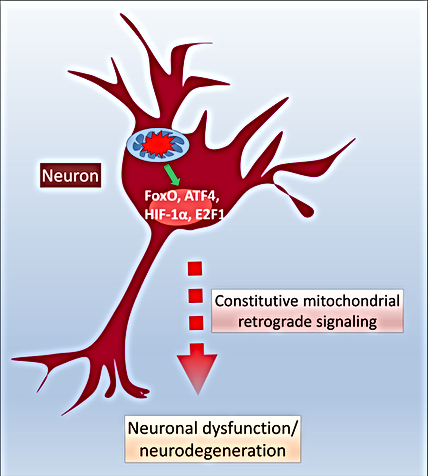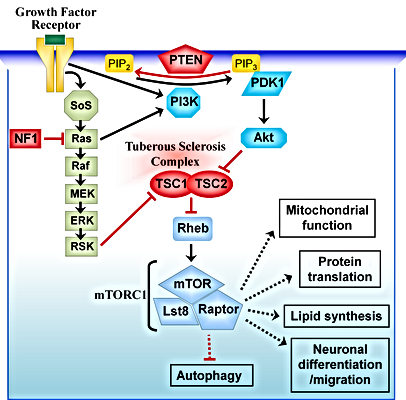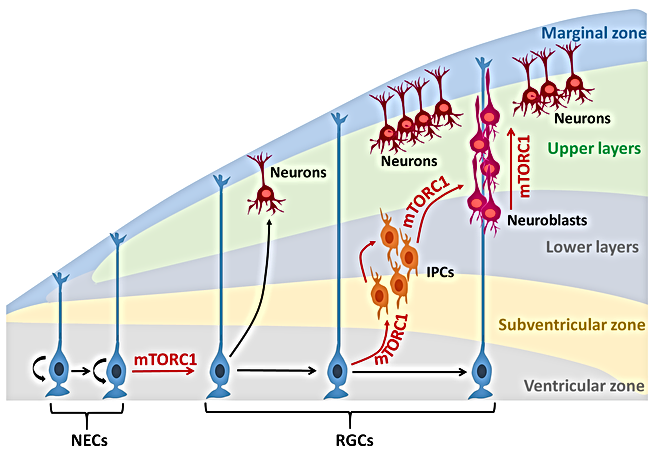Research
Mitochondrial signalling:
Mitochondrial signalling
Mitochondria are tiny structures within cells, which play a critical role in cellular energy production and metabolism. When these 'powerhouses' malfunction, it can result in chronic illness.
Mitochondrial diseases are a group of genetic disorders that cause damage to cells and tissues in the body and affect up to 1 in 4300 people in the UK. There are currently no preventative treatments for mitochondrial diseases.
Extensive evidence from animal and clinical studies also suggests that defective mitochondria play a critical role in other neurodegenerative diseases, including Alzheimer's and Parkinson's disease.
We are interested in how mitochondria communicate with the surrounding nerve cell, through 'mitochondrial signalling'. We and others have shown that when nerve cells are stressed or damaged, as happens in neurodegenerative disease, mitochondrial signalling pathways are activated.
Excitingly, we can target these pathways to improve the function of nerves, suggesting that targeting mitochondrial signalling pathways might be a way to treat and prevent mitochondrial disease and neurodegenerative diseases such as Alzheimer's and Parkinson's disease.


mTOR signalling:
mTOR, or mechanistic target of rapamycin, is a large protein kinase and a crucial sensor of cellular anabolic processes. mTOR signalling regulates a wide variety of cellular functions, including growth control, mitochondrial function, autophagy and lipid synthesis.
Activation of mTOR signalling also causes neurological diseases associated with epilepsy, autism spectrum disorders and intellectual disability.
We are interested in understanding the role of mTOR in nervous system development and how activation of mTOR signalling causes neurological disease.
In the long term, understanding how mTOR contributes to neurological disease will lead to new treatments for these devastating diseases.






